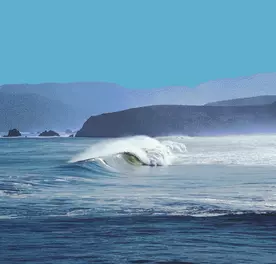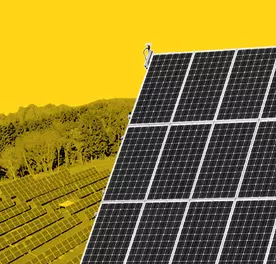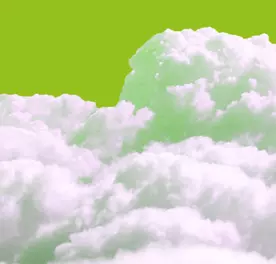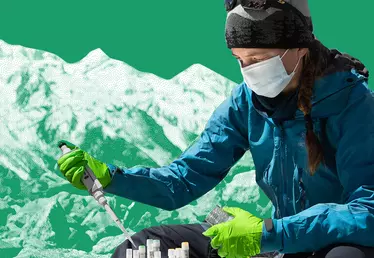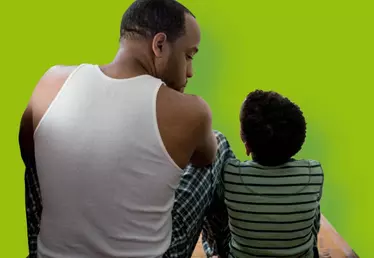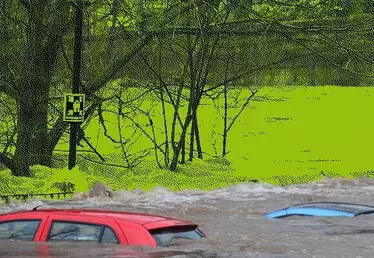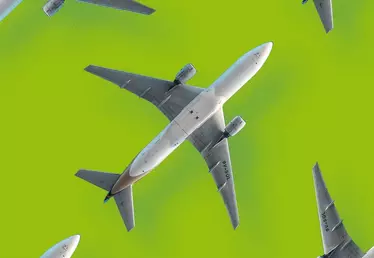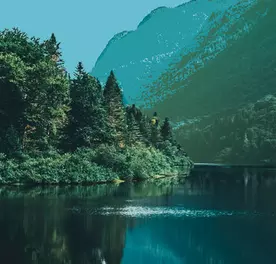
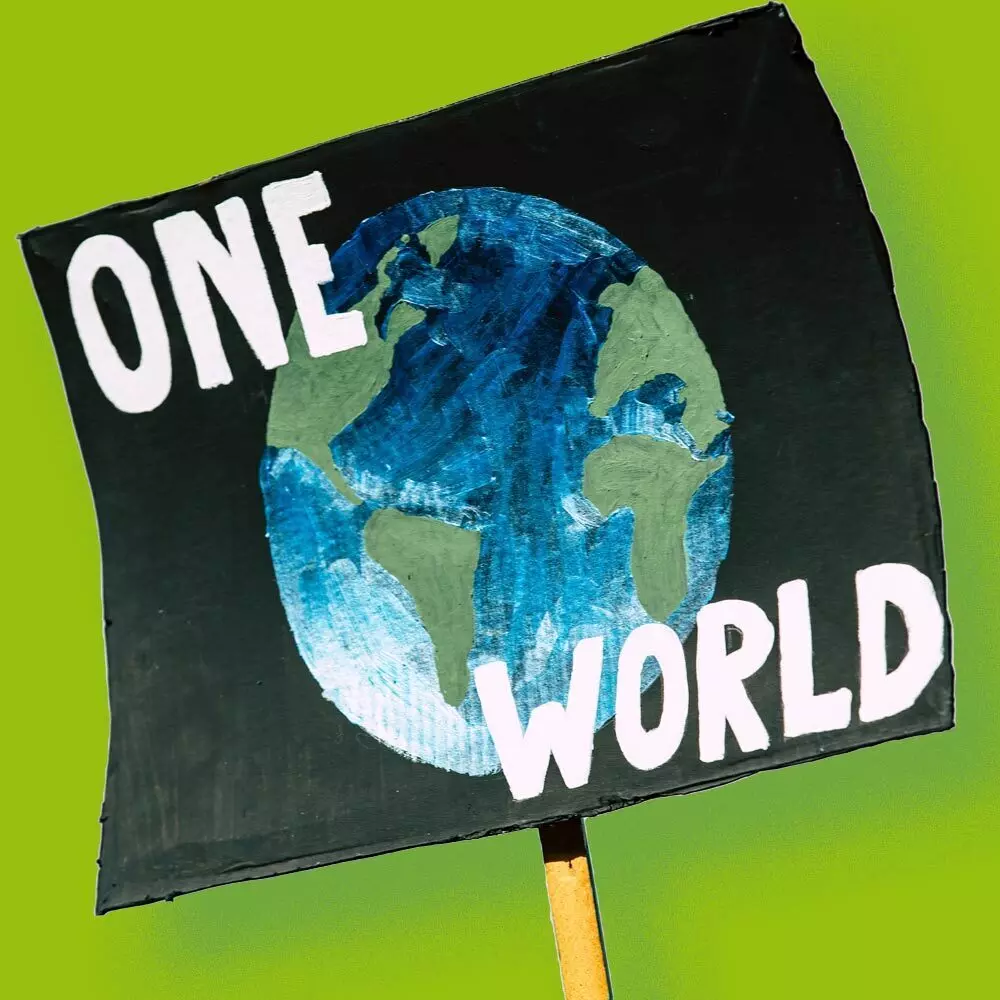
Hero banner custom title
Is collaboration the key to the climate change crisis?
4 min
The climate crisis is a collective challenge. Rajiv Joshi, co-author of The Decisive Decade: Organizing Climate Action, explains how the situation we are currently struggling with can only be solved if every entity, individual, business or State agrees to collaborate and do its part.
Can you tell me about what led up to the creation of this report and why you felt it was so necessary at this moment in time?
Rajiv Joshi: The day after the 2015 Paris Agreement was signed, Christiana Figueres, its chief architect, created Mission 2020, which was designed to help the world as it moved towards the next major milestone in the climate action agenda. The core and final component of that mission and its legacy was to create a framework that would guide the climate action field for the next decade. This decade is considered the “decisive decade” because the science told us quite clearly that the actions we take in these next years before 2030 would in major part determine our ability to achieve what we need to achieve by 2050. This report helps us understand how we can work together better, how we can collaborate to drive the systemic change required.
We realized that we need to build bridges between many unlikely allies in the climate change ecosystem and that new strategies are necessary to harmonize their distinct yet complementary approaches. In short, we need to be able to work across generations, sectors, cultures, in a way that is catalytic. We’ve begun to bring together educators and activists and investors and business leaders and other key constituencies to solve problems that they can't solve alone.
This process starts by understanding that we are all actors in this system and that each actor has a role to play. Once we are conscious about each other's roles, and our own role, we can begin to strategize in order to highlight positive examples, orchestrate change, then operationalize that change ౼ three core activities that are essential for deep, systemic change. Highlighting involves creating awareness and providing scientific evidence of the challenge, orchestrating entails convening different actors and allocating resources to address the issue, whilst operationalising consists of developing and implementing solutions.
So you’re talking about the seven critical roles defined in the report ౼ the “Decisive Seven”*? Can you give me an example of how defining these roles makes a difference?
R.J.: People often fall into playing their role without the awareness of how that role contributes to an ecosystem or to a shared goal ౼ which is to stop the climate crisis. So it’s important for actors to understand their role and to “self-identify” their D7 roles, as these identities are based on one’s own sense of which approach(es) most closely match their theory of change. One cannot shoehorn an actor into one or more category - it has to come naturally, in order to support collaboration.
Catalyzing deep, systemic change also requires us to create a safe space, a shared understanding between the various roles. This leads to a virtuous cycle where roles reinforce themselves and create new opportunities for addressing some of the world's biggest challenges.
What’s a real world example of this virtuous cycle in action?
R.J.: By the time we got to June of last year, less than 2% of the global south was vaccinated and the climate talks in Scotland were at massive risk of failure because half of the world just couldn't physically get there. But something happened ౼ a bit of orchestrating, highlighting and operationalising. Shakers (those raising awareness around the pandemic) began getting green groups to support the vaccination push. So, those raising awareness around the pandemic and those raising awareness around the climate crisis joined forces to create a narrative where they leveraged the fact that there would be a climate summit in order to get resources and doses to people in other parts of the world. “Funders” funded green groups to vaccinate. Political leaders stepped up and spoke out. “Weavers” worked behind the scene connecting various constituencies who were often speaking past each other.
There was a mutually reinforcing relationship between these various roles ౼ a space was created to coordinate various coalitions and bring climate groups into conversations in order to use their collective power for a positive outcome. We might not have had a COP if the climate movement did not put its weight behind the pandemic response.
What do you hope will happen as a result of this study?
R.J.: Right now, I’m trying to put it to work because I really believe that there are a million reports and they are often never implemented. So I think of this as a framework and now it’s about applying that framework to solving different problems and supporting systemic change.
I am facilitating groups of philanthropists to utilize the Decisive Decade as a framework to help them craft investable propositions, help them think about how they can put their capital to work to support these various groups and create projects and initiatives that can actually address some of the challenges.
This idea of collaboration has a very positive feel to it ౼ do you feel positive about the future of where climate action is heading?
R.J.: I believe the climate crisis will shift our world from a paradigm of “compete and consume” to a paradigm of “cooperate to conserve” ౼ which ultimately is good for humanity for our planet. We’re now seeing the limits of a model which is about unlimited growth, growth without any checks. I think we need to be realistic about the costs of maintaining a system that is very extractive ౼ meaning taking more than we give. Instead, there can be competition and cooperation ౼ there are a lot of areas where companies and groups can work together ౼ in ways that benefit everyone and move us ever faster towards a better future.
Change is going to come from this process. This process forces us to disrupt our way of being and our way of doing business. Companies may well resist this,but if you’re not willing to cooperate, you will lose because the next generation of talent doesn't want to work in institutions that are purely extractive.
*Shakers, Analysts, Playmakers, Weavers, Frameworkers, Pioneers and First Aiders.
